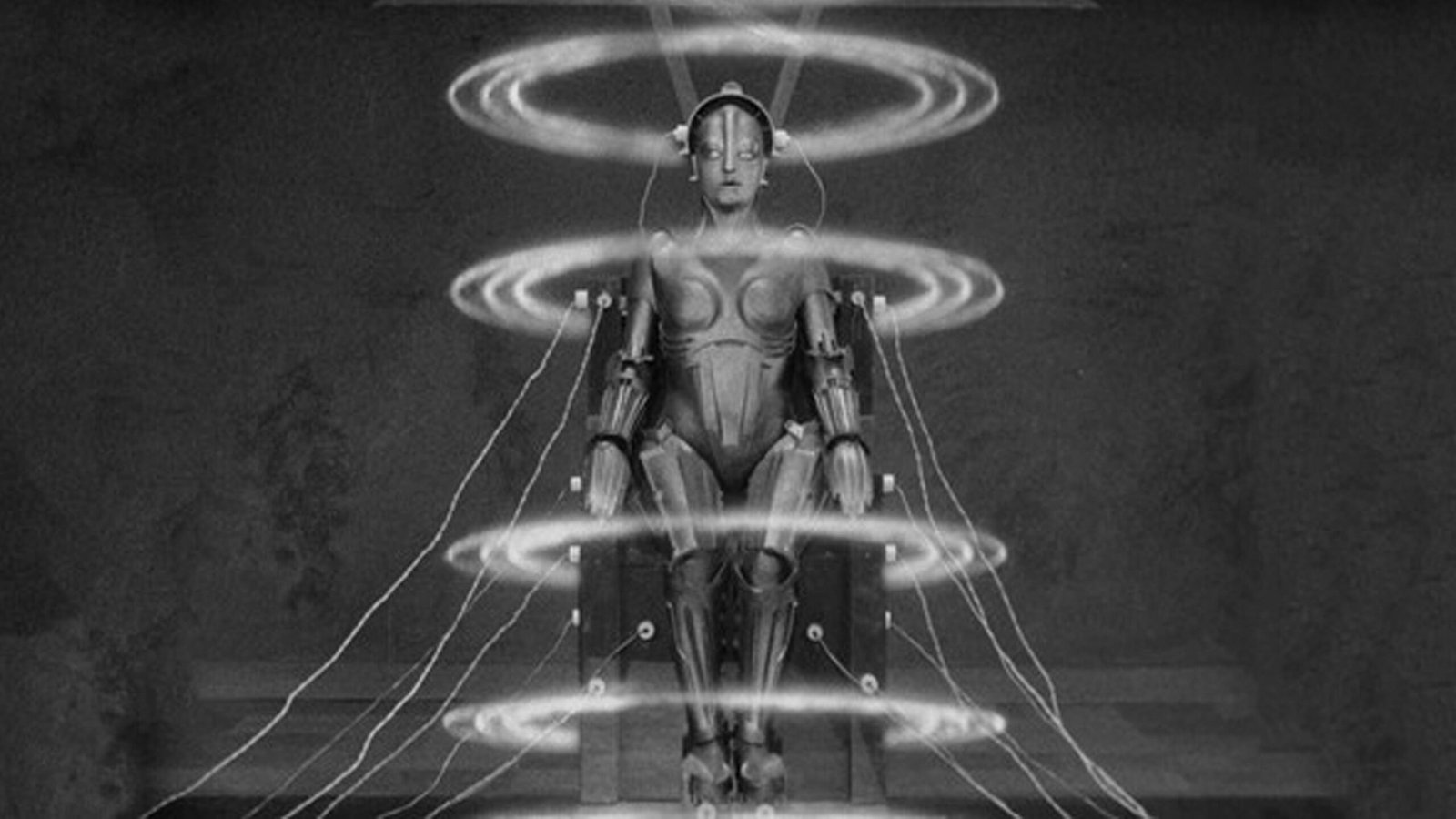Metropolis – the first Sci-Fi Movie?
Metropolis was produced in Germany in 1927 and was a black and white silent movie. It was produced by Fritz Lang who, later in life, had certain misgivings about the plot and particularly the ending. Setting aside the controversy over any implied political rhetoric, visually the movie is a masterpiece. The images and ideas set the scene for future generations of Sci Fi movies, including Star Wars.
The setting is a futuristic city that is sharply divided into the working classes and the rich rulers. The son of the rich city master falls in love with a girl who prophesies that a mediator will come and bring the working and ruling classes together. The plot is long and complex, taking two and a half hours to unfold, with an unexpected ending.
Visually the movie is stunning. The design of the city was influenced by the skyscrapers of New York and has a strong art deco feel. The special effects were pioneering. The robot that is featured in the trailer here was constructed around a plaster cast taken of the actress Brigitte Helm.
Footnote
The music for this trailer was created by me as part of an assignment for my Music for Film and TV course.
The score for the movie was composed for a large orchestra and was influenced by the music of Wagner and Richard Strauss but with modernist touches. The original score was only ever played once, at the film’s premiere, although sections of it were later recorded and released on record. It wasn’t until 2001 that the full score was recorded to coincide with the film’s restoration. The recording was released in 2003. Since then a number of recordings have been made, ending with a version in 2010 to accompany a later more complete restoration of the film.
Other composers have created scores for this film, with possibly the most interesting of these being produced by Italian music producer Giorgio Moroder in 1984. Moroder produced a pop/rock soundtrack performed by Pat Benatar, Bonnie Tyler, Jon Anderson, Adam Ant, Cycle V, Loverboy, Billie Squier and Freddie Mercury, outbidding David Bowie for the rights. Moroder’s edit of the film lasted only 83 minutes.
His original intention was only to produce a new soundtrack with popular rock artists, but he was frustrated by the lack of a definitive print of the film. This is what motivated his expanding the project into the first major reconstruction of the film. Moroder’s version received poor reviews, with Freddie Mercury‘s song ‘Love Kills’ getting the Raspberry Award for ‘Worst Original Song’, and Moroder getting ‘Worst Musical Score’. On the positive side, Bonnie Tyler received a Grammy Award – Best Female Performance for ‘Here She Comes’.
The Moroder version was for a long time unavailable on video due to copyright issues. In August 2011 it was finally released on Blu-Ray and DVD, after which it received a Saturn Award for Best DVD/Blu-Ray Release by the Academy of Science Fiction and Horror Films.
Back in 1927 Metropolis had a mixed reception, with the visuals and special effects being highly praised, but the plot causing a lot of controversy. The original length of the film at about two and a half hours also caused problems for the distributors and promotors. This resulted in a number of cuts being made, and a number of different versions of the film in circulation. Current opinion looks much more favourably on this film, seeing it as a true classic, ground breaking and way ahead of its time.
The trailer here gives a good impression of how the film looks with its futuristic city. It focusses mainly on the robot (Maschinenmensch) which, incidentally, inspired the design of C-3PO in Star Wars.
By Elizabeth Moonlight

I love the design of Deco. Likely the reason I like Steampunk as well. Would it be fair to say the birth of Goth came from Germany in the 1920’s – smiles.